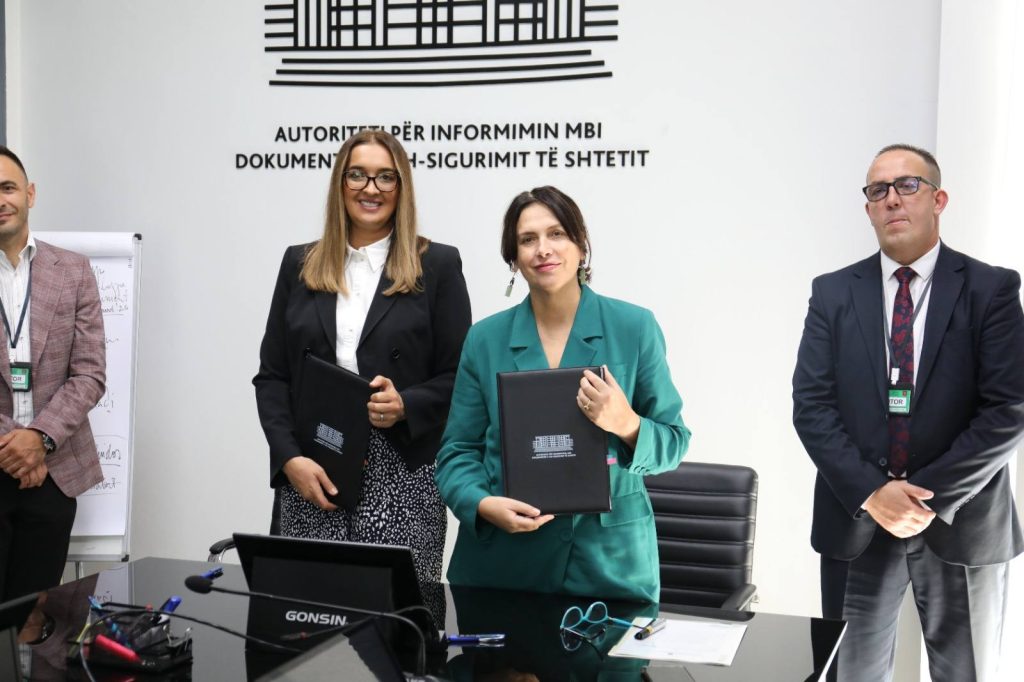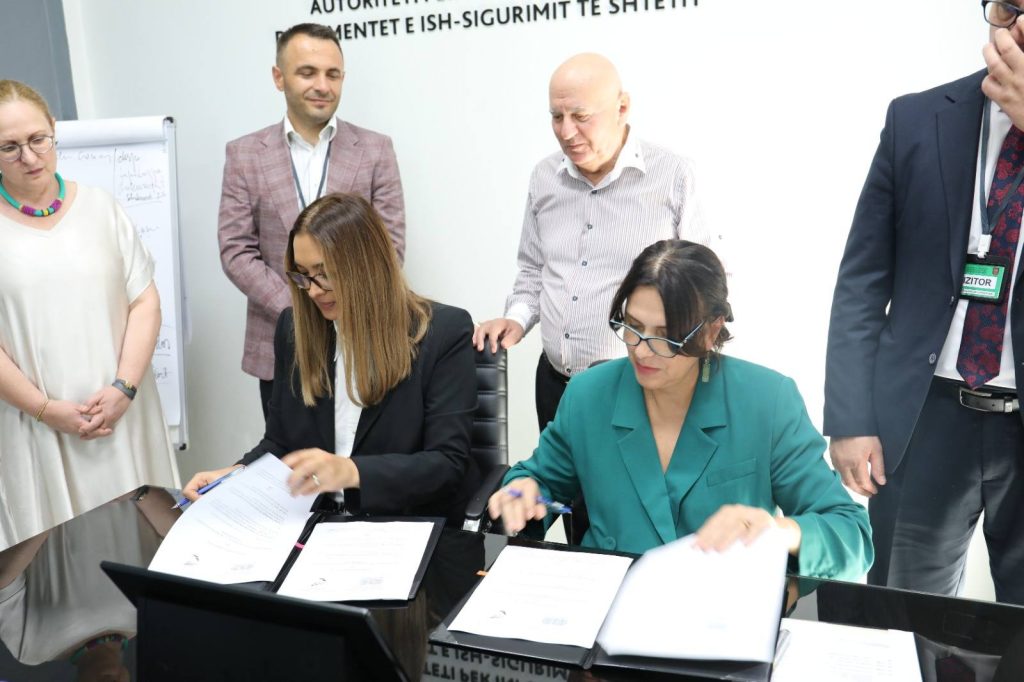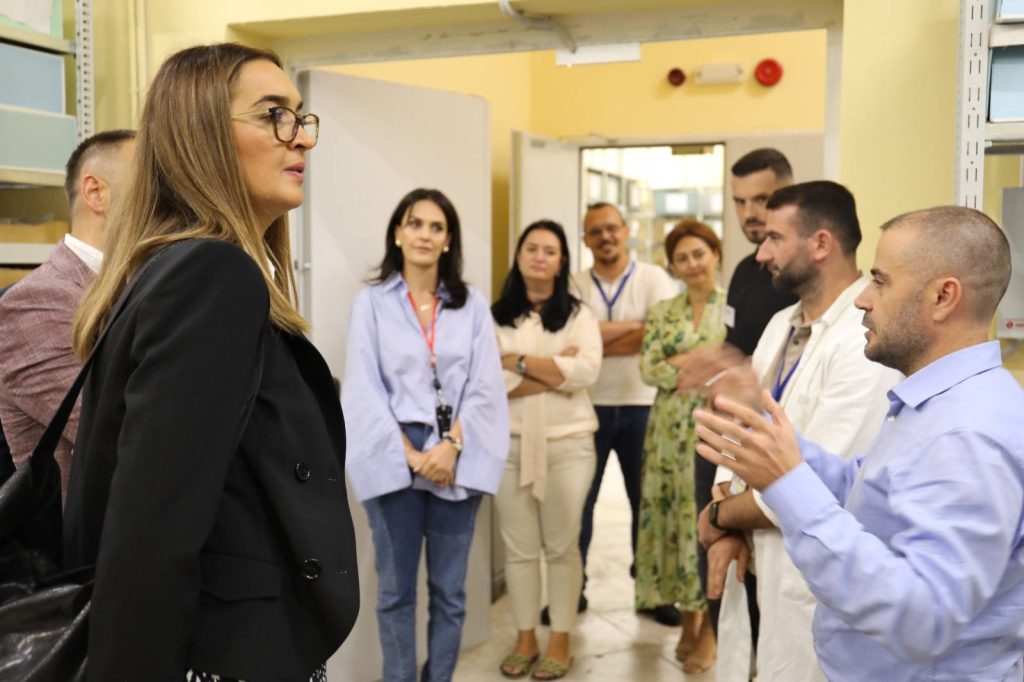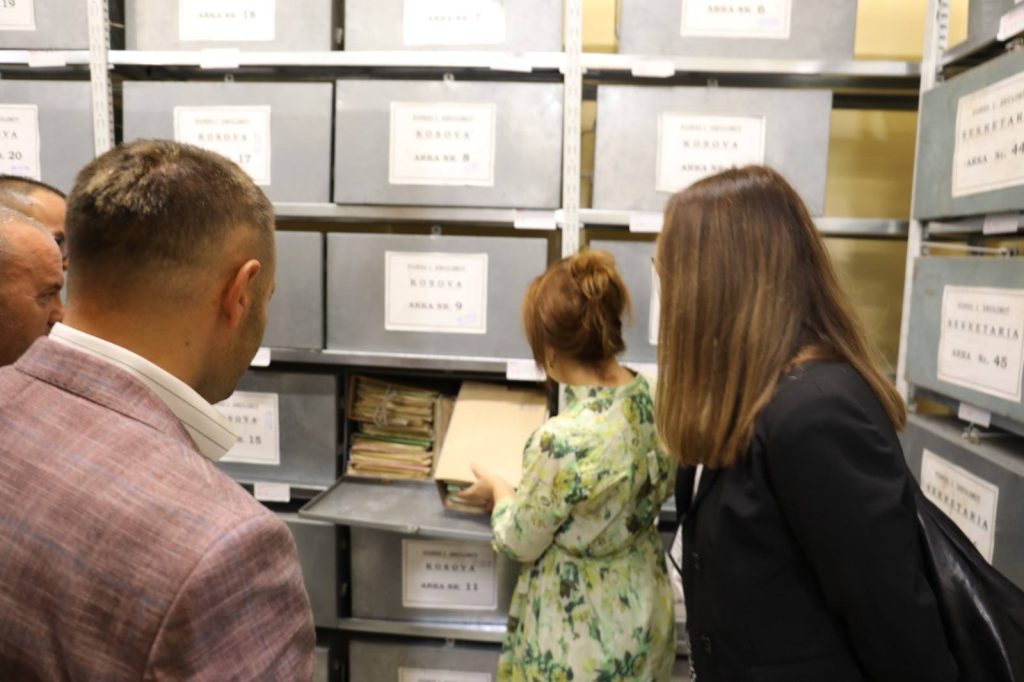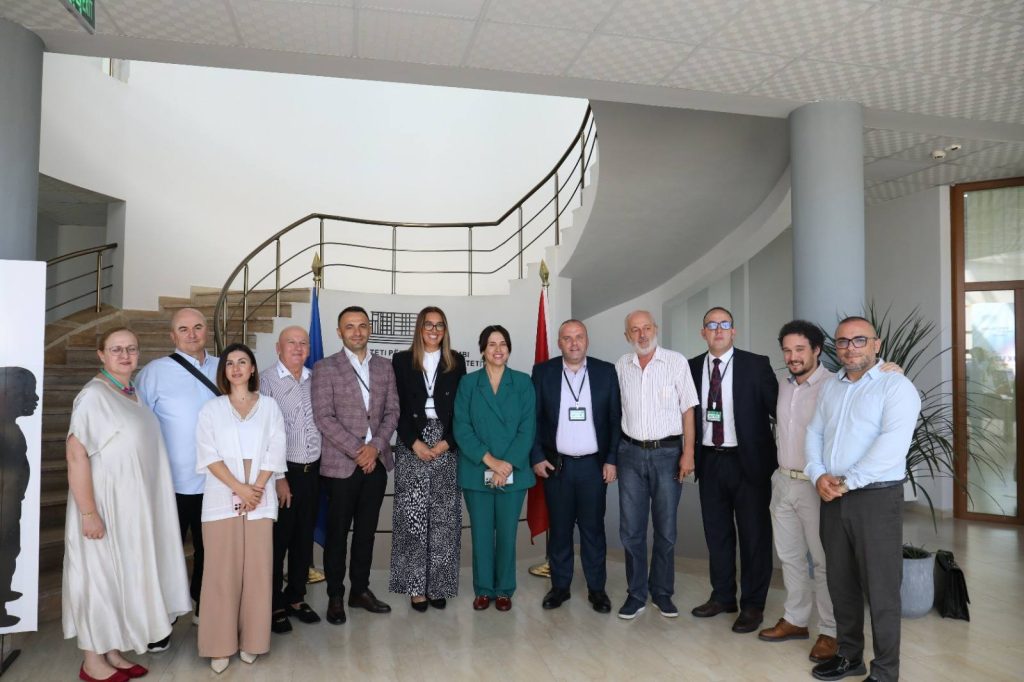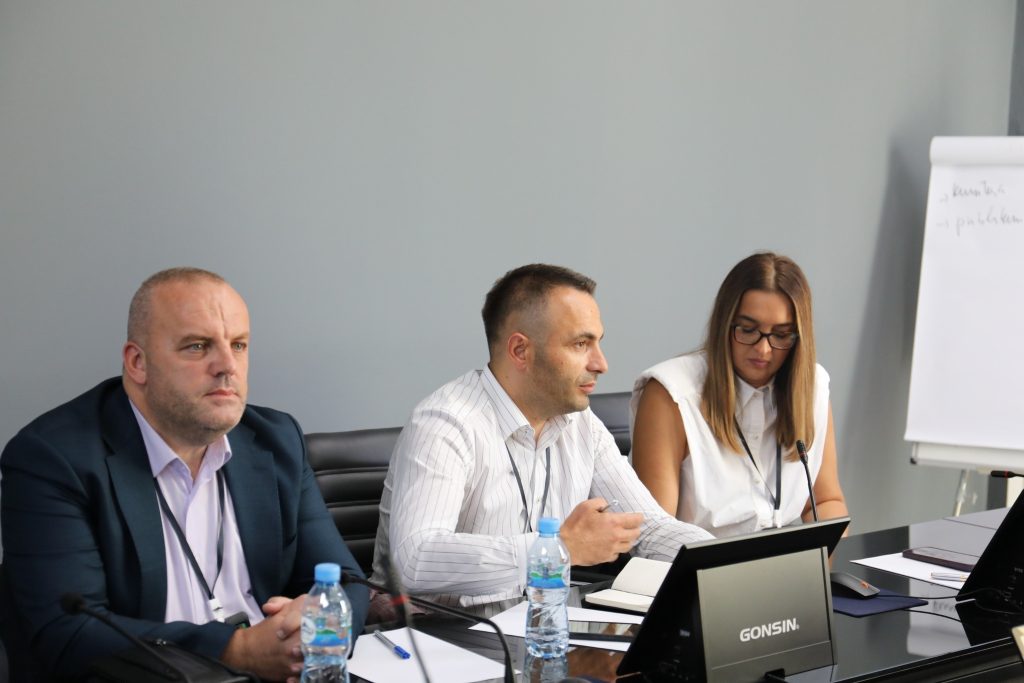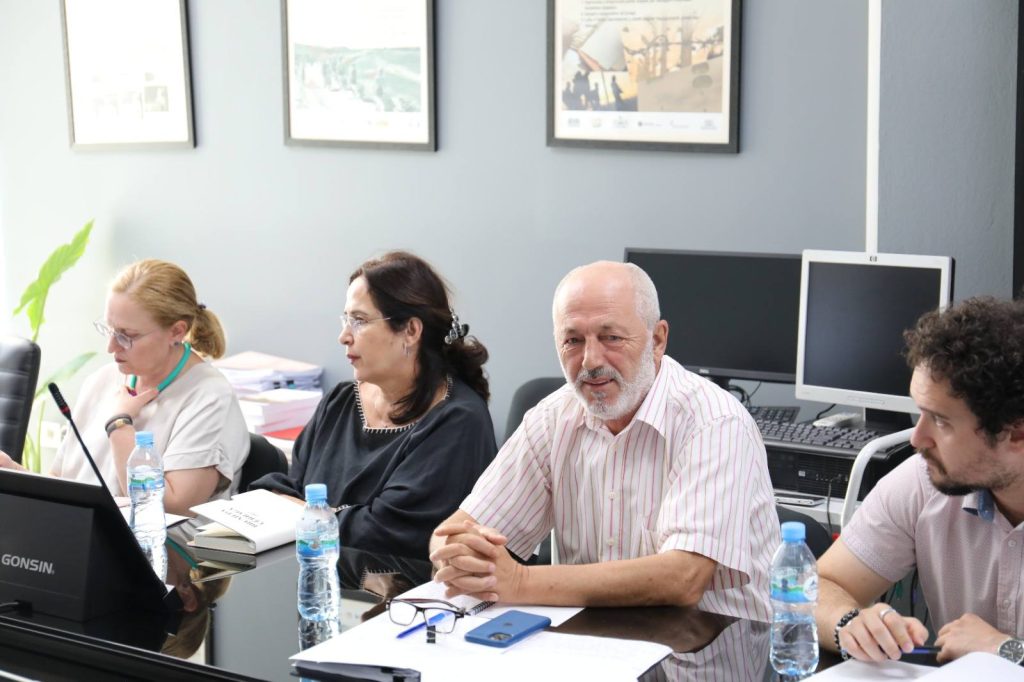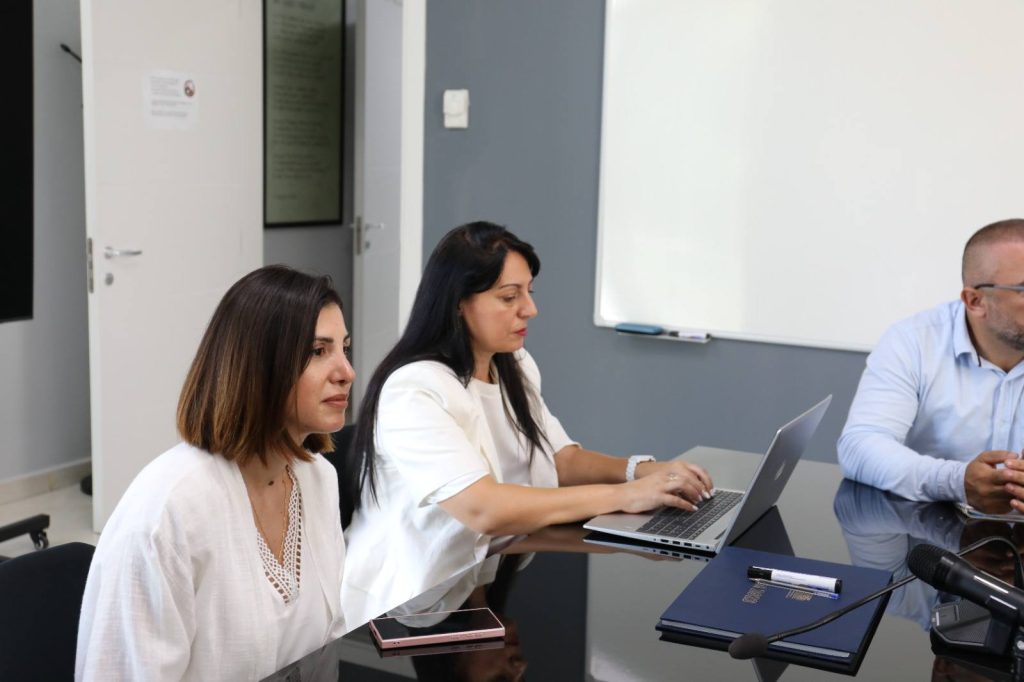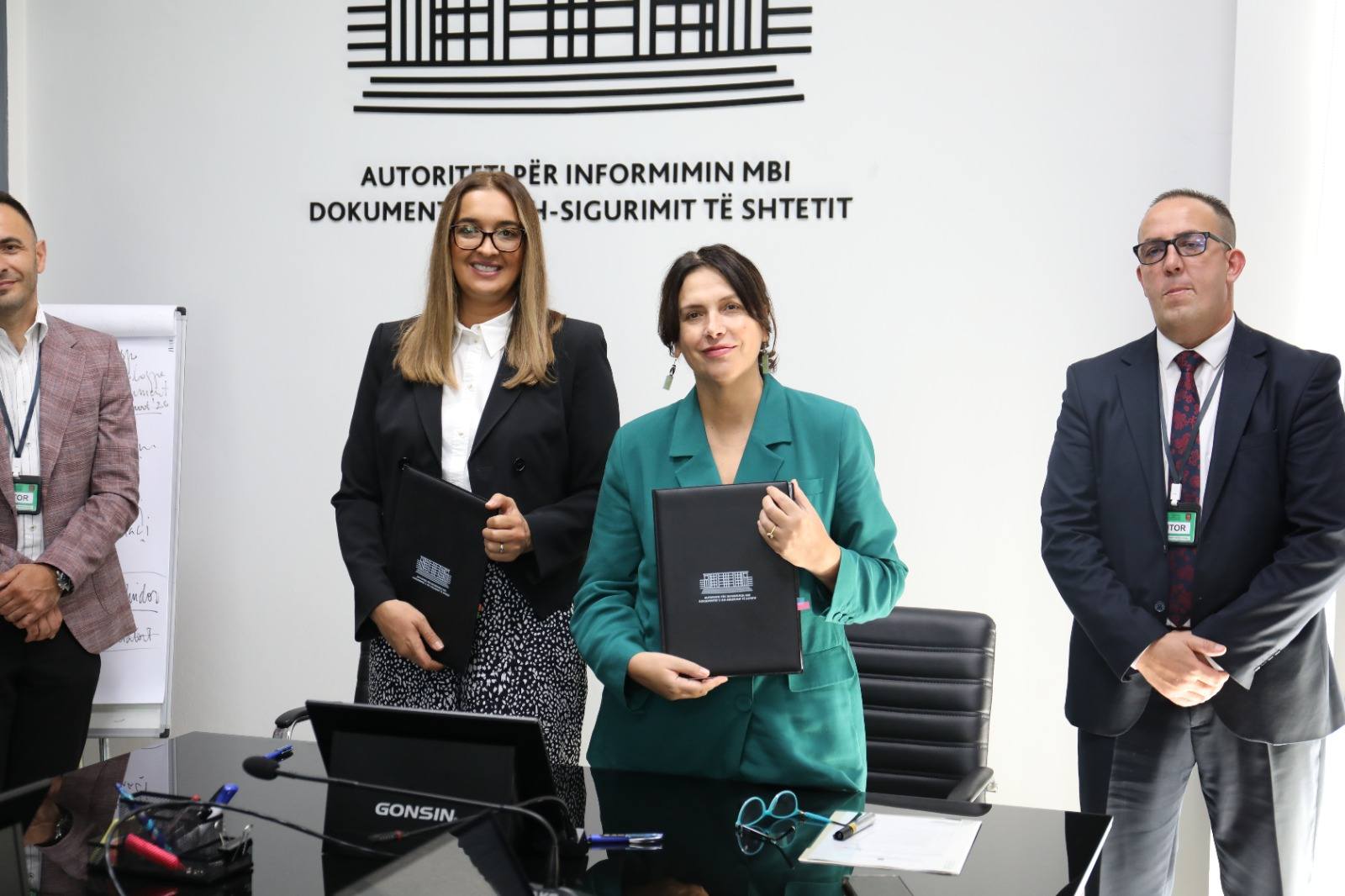Tirana, September 12, 2025 – Today we welcomed representatives of the Albanological Institute of Prishtina, led by Assoc. Prof. Dr. Meliza Krasniqi, and concluded a cooperation agreement for the development of joint projects, the exchange of documentation, and the strengthening of academic ties in the field of historical studies.
The Chairwoman of the Authority, Dr. Gentiana Sula, emphasized the complexity of the human life stories documented in the Kosovo Fund, which reflect the fates of citizens who fled from the oppression of their ethnic and cultural rights and their treatment by the former State Security.
This partnership will contribute to historical scientific research with a careful ethical and legal approach.
The representative of the Albanological Institute of Prishtina, Assoc. Prof. Dr. Meliza Krasniqi, highlighted the importance of this cooperation in the field of scientific research and in shedding light on our shared history.
Member of the Authority, Mr. Altin Hoxha, presented the “Kosovo Fund,” while Mr. Selami Zalli, Director of the Directorate of Information, drew attention to the work carried out so far by the Authority with this focus.
#The signing of the Cooperation Agreement foresees the implementation of joint scientific research, the development of common projects, conferences and symposiums, the exchange of documents and publications, as well as the study of historical figures and events related to the dictatorship period.
Some of #forms of cooperation expected for 2026 include: the opening in Prishtina of an exhibition on the typologies of documents of the former State Security; the co-organization of a symposium on cross-border movements along the Albania–Kosovo northeastern border; the organization of “Open Files” sessions on historical figures of Albanology; book clubs; and joint publications and documentaries of public interest.
#The cooperation between the Authority for Information on the Former State Security Documents (AIDSSH) and the Albanological Institute of Prishtina is significant for several reasons. Firstly, it enables the exchange of knowledge and archival resources to document and analyze the period 1944–1991 in both territories, offering a more comprehensive perspective on the persecutions and repressive policies carried out by the State Security and Yugoslav authorities.
Secondly, it strengthens transitional justice through the joint study of files, helping victims and historians uncover the truth about events such as the 1981 demonstrations and the ethnic purges in Kosovo.
Thirdly, this partnership contributes to building a shared historical narrative between Albania and Kosovo, promoting unity and civic education. Finally, the cooperation supports European integration by following models such as the German approach to managing the archives of totalitarian regimes, turning this process into a bridge for reconciliation and transparency.
The group of researchers was also introduced to the archival collections and the audiovisual productions of the Authority, including the documentaries “The Three Days of Freedom” and “The Other Side of Valias.”
This visit of representatives from the Albanological Institute of Prishtina to Tirana follows a previous meeting held in Prishtina between representatives of the Authority for Information on the Former State Security Documents and Kosovar scholars.
#The Albanological Institute of Prishtina (AIP), founded on June 1, 1953, is the main center for Albanological studies in Kosovo and one of the most important Albanian scientific institutions. Its history reflects not only the development of research in language, literature, history, folklore, and ethnography, but also the great challenges faced during the post–World War II period, when it was closed, censored, and its researchers persecuted for their free scholarly thought. Nevertheless, the Institute remained a center of cultural resistance, where generations of scholars — from Selman Riza and Mehdi Bardhi to Anton Çeta and Hysen Matoshi — kept the Albanian identity alive. After the 1999 war, the AIP regained its position as an independent research institution, developing major projects, publications, and journals such as Albanological Research and The Albanian Language. Today, the AIP cooperates with the Academy of Albanological Studies in Tirana and other research centers, organizing annual events such as the Week of Albanology and the Albanological Publications Fair. With a library of over 50,000 volumes and a rich publishing heritage, the Institute continues to stand as a pillar of Albanology and Albanian cultural memory.
#GentianaSulaOfficialPage,Branch of History – Albanological Institute of Prishtina @Albanological Institute of Prishtina , Meliza Krasniqi, Skender Vrioni, Altin Hoxha, Selami Zalli, Nertila Seitaj, Ermira Shtino, Anton Dukagjini, Arlinda Kondi@themainones#AIDSSHarchive#LearningfromthePast#History#Kosovo#Albania#collaboration
